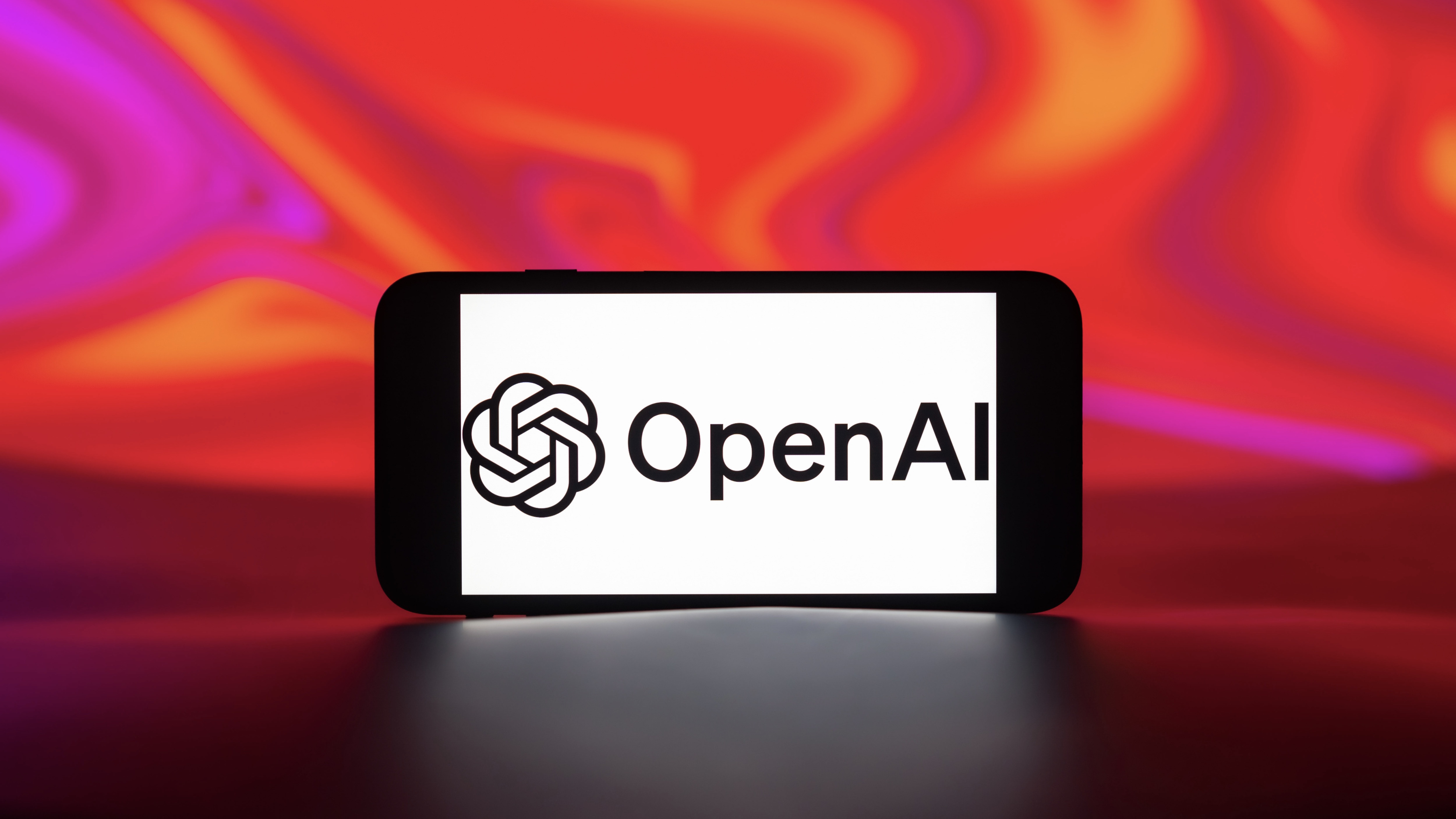Hugging Face just launched an open source alternative to OpenAI’s custom GPT builder, and it’s free
Hugging Face looks primed to position its new assistant creation platform as a direct competitor with OpenAI’s GPT Store, but how does it compare?


Rory Bathgate
Hugging Face has unveiled a new feature called ‘Hugging Chat Assistants’ that allows users to create and customize their own AI chatbots in an apparent bid to provide an open source alternative to OpenAI’s ‘GPT Store’.
The announcement was made on X by Hugging Face’s technical lead and LLM director, Phillip Schmid, who paraded the efficiency of Hugging Face’s chat assistants.
Introducing Hugging Chat Assistant! 🤵 Build your own personal Assistant in Hugging Face Chat in 2 clicks! Similar to @OpenAI GPTs, you can now create custom versions of @huggingface Chat! 🤯An Assistant is defined by🏷️ Name, Avatar, and Description🧠 Any available open… pic.twitter.com/9XaReKgg9mFebruary 2, 2024
Schmid said that personalized chatbots could be created in just “two clicks,” complete with custom names, avatars, and system prompts.
Notably, he also touted Hugging Face’s new found capacity to rival other AI companies, candidly describing the new feature as “similar” to OpenAIs custom GPT offering.
OpenAI's custom GPT builder framework, offered through the GPT Store, enables users to create their own AI assistants based on specific individual business - or personal - needs.
Hugging Face’s offering, meanwhile, will provide public access to a similar collection of third-party Hugging Chat Assistants.
Hugging Face vs OpenAI: What’s better for building custom chatbots?
Both Hugging Face and OpenAI are catering to an ever-increasing demand for generative AI tools that fulfill specific use cases, though there are a couple of key differences with the launch of this latest framework.
Get the ITPro daily newsletter
Sign up today and you will receive a free copy of our Future Focus 2025 report - the leading guidance on AI, cybersecurity and other IT challenges as per 700+ senior executives
On a purely financial level, OpenAI levels a range of charges for its GPT builder, while Hugging Chat assistants are free to use.
OpenAI’s cheapest offering is ChatGPT Plus for $20 a month, followed by ChatGPT Team at $25 a month and ChatGPT Enterprise, the cost of which depends on the size and scope of the enterprise user.
Part of the reason Hugging Face is able to offer such a competitive alternative is because it uses open source large language models (LLMs).
OpenAI's GPT builder and GPT Store rely entirely on its proprietary, closed source LLMs, GPT-4, GPT-4 Vision, and GPT-4 Turbo.
Hugging Face users, by contrast, are offered a wider variety of models, including Mistral’s Mixtral platform and Meta’s Llama 2.
While Llama 2 can’t quite outperform GPT-4 yet, it runs at a similar level and, without the hefty price tag, it’s an attractive alternative.
There are still a few advantages to OpenAI's GPTs, however, such as the ability to generate images by utilizing OpenAI's inhouse Dall-E 3 engine.
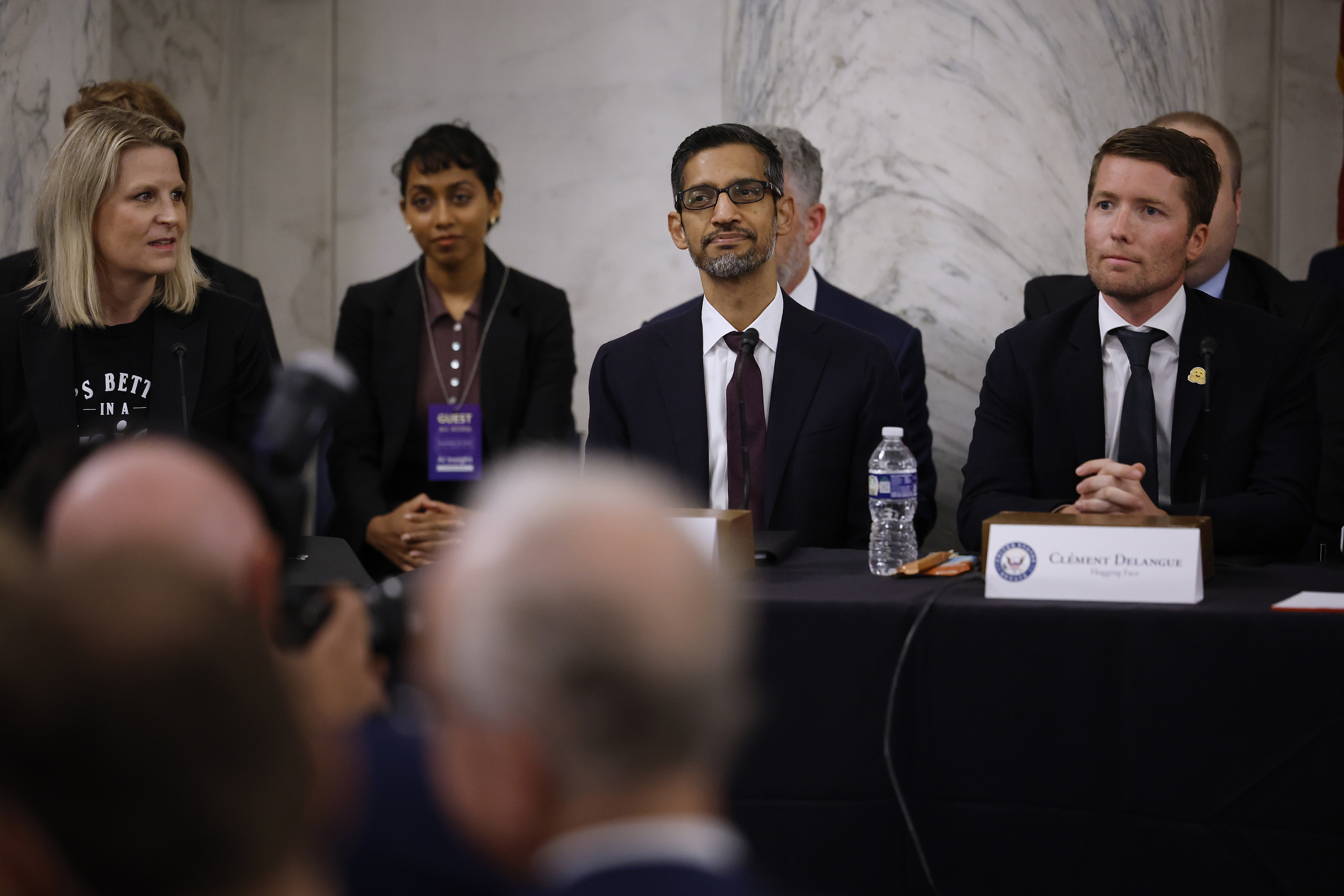
Hugging Face recently announced a landmark partnership with Google
Other weaknesses of Hugging Chat Assistants include the lack of web search or retrieval augmented generation (RAG) support.
Despite its shortcomings, though, Hugging Face’s open source offering is still impressive. It looks to bolster Hugging Face’s position in the ever-accelerating AI goldrush, which just recently saw it secure a landmark partnership with Google.
Hugging Face “cuts out the heavy lifting” for open source AI development

This is a significant announcement for not only the open source AI, but also the entire tech sector. Throughout 2023, enthusiasm for generative AI among business leaders has slowly been pitted against the rising cost of generative AI platforms with Ben Wood, chief analyst and CMO at CCS Insight telling ITPro that many small firms would find AI “prohibitively expensive”.
In bringing customized chatbots to businesses for free, backed by powerful open source models, Hugging Face has put generative AI back on the table for those firms unable to afford the ongoing costs of public AI, or cough up the sizable funds necessary to train a model of their own.
Open source AI isn’t new in itself, as Hugging Face has been platforming free machine learning and generative AI models for some time.
But this new announcement cuts out the heavy lifting of implementing an open source model, allowing firms with smaller IT teams or limited time and resources to adopt AI for free. This is a big step toward ‘democratizing’ AI, a term many supporters of open source AI have come to use in the past year and a half.

For the vast majority of firms, this will not come into play and has been interpreted by many as an ‘anti hyperscaler’ clause to prevent competitors such as Google and Microsoft from using it directly. Smaller firms – that is, almost every other company in the world – seeks to benefit from the powerful, free model.
Mistral claims that Mixtral not only outperforms Llama 2 on “most benchmarks”, but is also superior to GPT-3.5 in the standard benchmarks too. This claim is borne out in some of its publication data, with the model achieving 70.6% in the text reasoning Massive Multitask Language Understanding (MMLU) benchmark against Llama 2 70B’s 69.9% and GPT-3.5’s 70%.
RELATED RESOURCE

Adopt generative AI and maintain security, privacy, and compliance
DOWNLOAD NOW
In other benchmarks such as WinoGrande, which pits LLMs against 44,000 reasoning problems, Mixtral’s score of 81.2% could not match Llama 2’s 83.2%. Both models cannot match Google’s Gemini or OpenAI’s GPT-4 – but they may not need to.
For many firms, functionality competitive with the free tier of ChatGPT will be good enough, particularly as part of a customer service funnel that redirects users to a human contact if problems aren’t resolved after a set window.
There’s also no reason to believe that Hugging Face won’t continue to update the platform with better models as they arrive. Meta is reportedly working on an even more powerful Llama 3 and Mistral aims to become a “European champion” for AI.
The benefits and potential of open source AI will continue to be explored in the coming weeks and months, as firms make models such as Llama 2 and Mixtral part of their software stack. This will make a meaningful contribution to that aim at the enterprise level.

George Fitzmaurice is a former Staff Writer at ITPro and ChannelPro, with a particular interest in AI regulation, data legislation, and market development. After graduating from the University of Oxford with a degree in English Language and Literature, he undertook an internship at the New Statesman before starting at ITPro. Outside of the office, George is both an aspiring musician and an avid reader.
- Rory BathgateFeatures and Multimedia Editor
-
 Cleo attack victim list grows as Hertz confirms customer data stolen
Cleo attack victim list grows as Hertz confirms customer data stolenNews Hertz has confirmed it suffered a data breach as a result of the Cleo zero-day vulnerability in late 2024, with the car rental giant warning that customer data was stolen.
By Ross Kelly
-
 Lateral moves in tech: Why leaders should support employee mobility
Lateral moves in tech: Why leaders should support employee mobilityIn-depth Encouraging staff to switch roles can have long-term benefits for skills in the tech sector
By Keri Allan
-
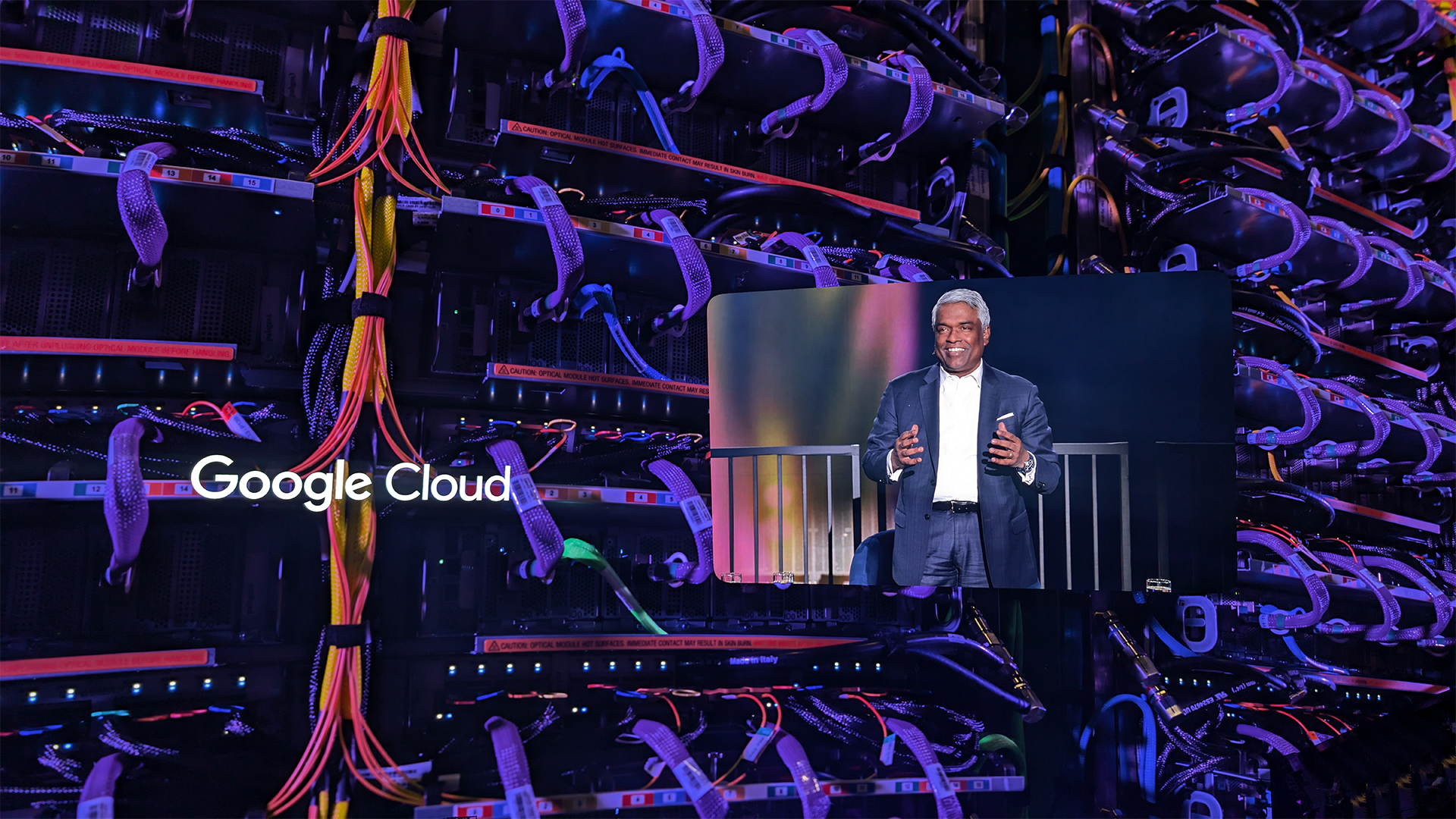 Google Cloud is leaning on all its strengths to support enterprise AI
Google Cloud is leaning on all its strengths to support enterprise AIAnalysis Google Cloud made a big statement at its annual conference last week, staking its claim as the go-to provider for enterprise AI adoption.
By Rory Bathgate
-
 Meta executive denies hyping up Llama 4 benchmark scores – but what can users expect from the new models?
Meta executive denies hyping up Llama 4 benchmark scores – but what can users expect from the new models?News A senior figure at Meta has denied claims that the tech giant boosted performance metrics for its new Llama 4 AI model range following rumors online.
By Nicole Kobie
-
 OpenAI woos UK government amid consultation on AI training and copyright
OpenAI woos UK government amid consultation on AI training and copyrightNews OpenAI is fighting back against the UK government's proposals on how to handle AI training and copyright.
By Emma Woollacott
-
 DeepSeek and Anthropic have a long way to go to catch ChatGPT: OpenAI's flagship chatbot is still far and away the most popular AI tool in offices globally
DeepSeek and Anthropic have a long way to go to catch ChatGPT: OpenAI's flagship chatbot is still far and away the most popular AI tool in offices globallyNews ChatGPT remains the most popular AI tool among office workers globally, research shows, despite a rising number of competitor options available to users.
By Ross Kelly
-
 ‘DIY’ agent platforms are big tech’s latest gambit to drive AI adoption
‘DIY’ agent platforms are big tech’s latest gambit to drive AI adoptionAnalysis The rise of 'DIY' agentic AI development platforms could enable big tech providers to drive AI adoption rates.
By George Fitzmaurice
-
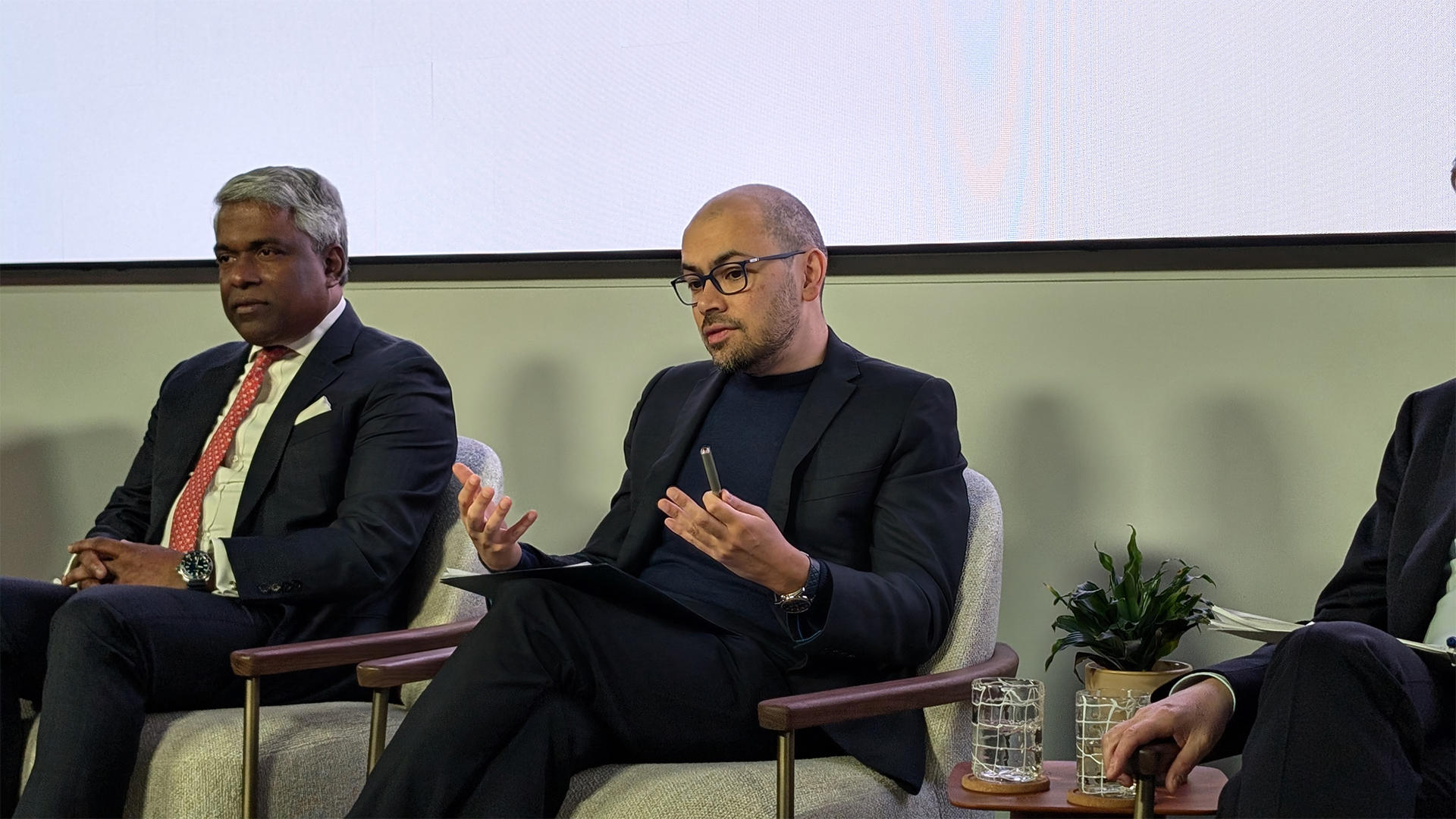 Google DeepMind’s Demis Hassabis says AI isn’t a ‘silver bullet’ – but within five to ten years its benefits will be undeniable
Google DeepMind’s Demis Hassabis says AI isn’t a ‘silver bullet’ – but within five to ten years its benefits will be undeniableNews Demis Hassabis, CEO at Google DeepMind and one of the UK’s most prominent voices on AI, says AI will bring exciting developments in the coming year.
By Rory Bathgate
-
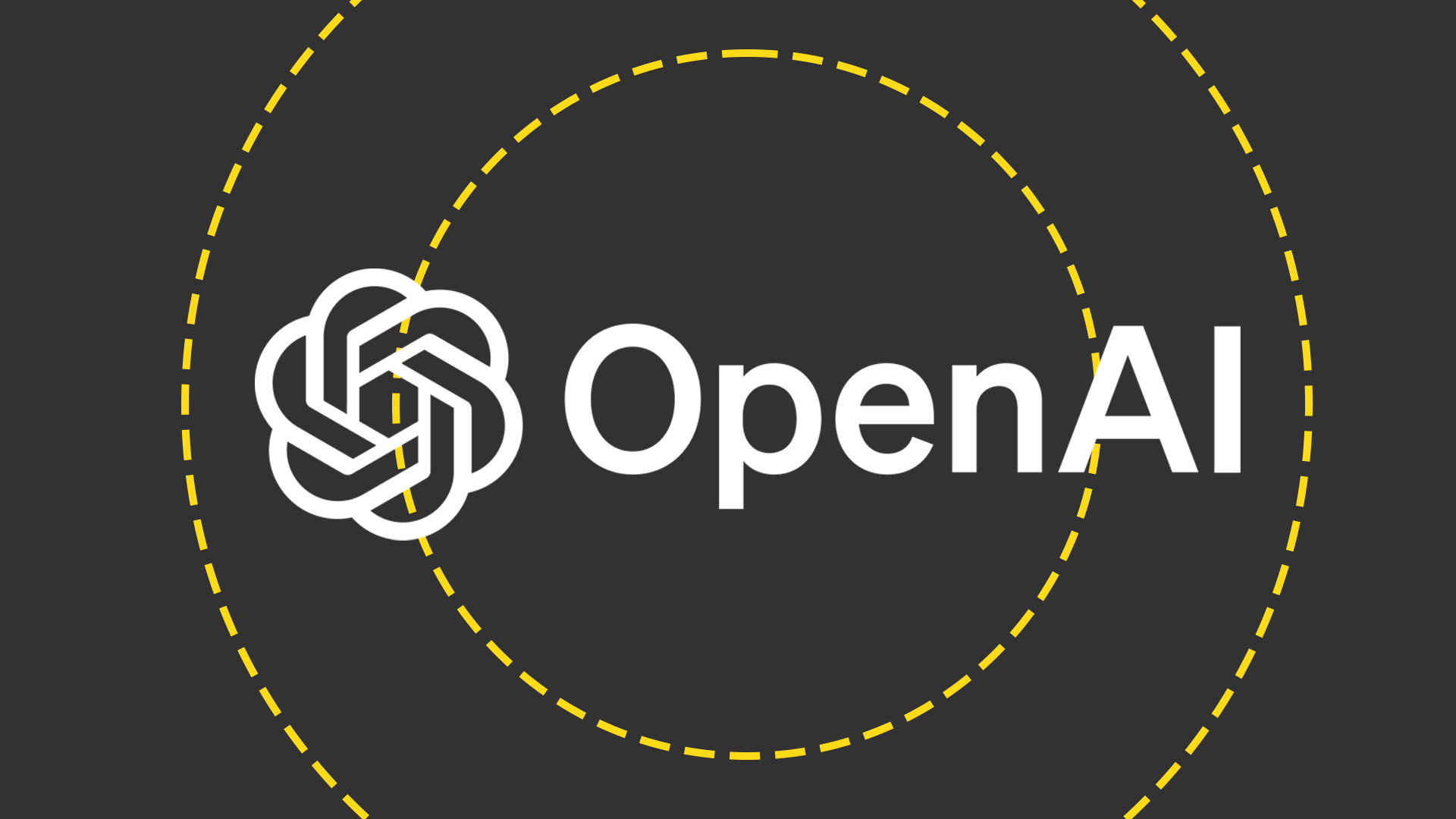 OpenAI wants to simplify how developers build AI agents
OpenAI wants to simplify how developers build AI agentsNews OpenAI is releasing a set of tools and APIs designed to simplify agentic AI development in enterprises, the firm has revealed.
By George Fitzmaurice
-
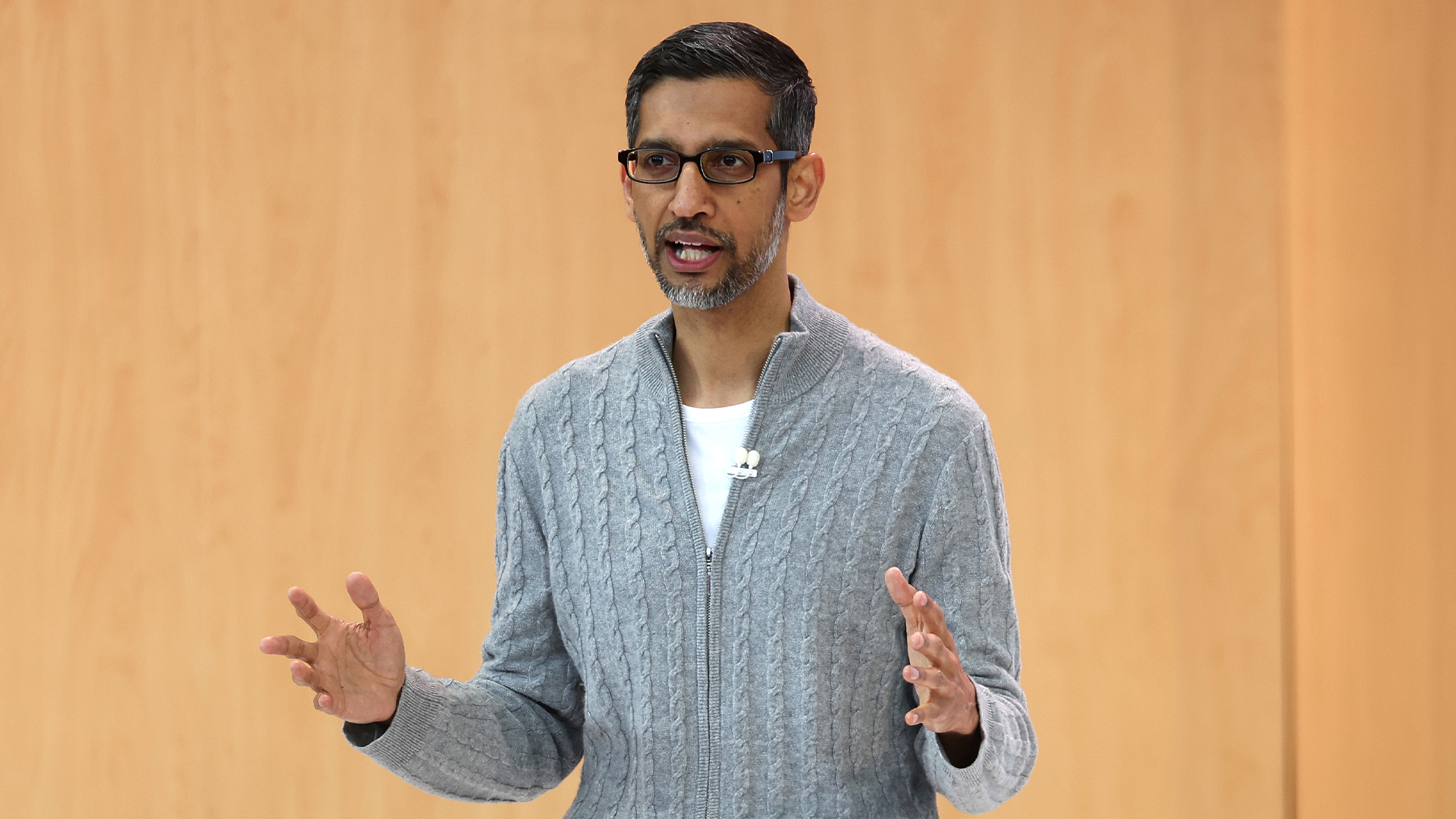 Google CEO Sundar Pichai says DeepSeek has done ‘good work’ showcasing AI model efficiency — and Gemini is going the same way too
Google CEO Sundar Pichai says DeepSeek has done ‘good work’ showcasing AI model efficiency — and Gemini is going the same way tooNews Google CEO Sundar Pichai hailed the DeepSeek model release as a step in the right direction for AI efficiency and accessibility.
By Nicole Kobie
